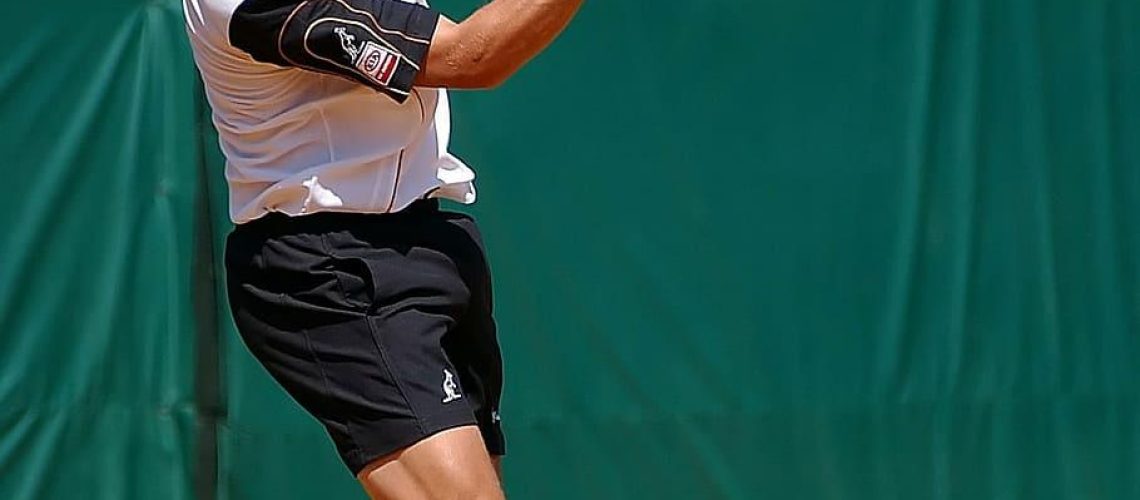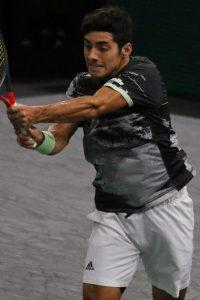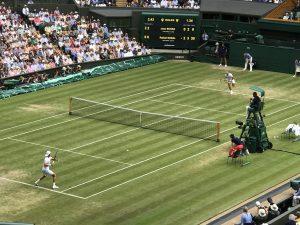We may earn money or products from the companies mentioned in this post.
Introduction to Coaching in Tennis

Tennis coaching plays a vital role in the development and success of tennis players It involves the guidance, instruction, and support provided by a coach to help players improve their skills, technique, strategy, and overall performance on the court
Definition of Coaching in Tennis
In tennis, coaching refers to the process where a knowledgeable and experienced individual assists players in developing their game This can include providing technical advice, analyzing opponents’ strategies, offering mental and emotional support, setting goals, and creating personalized training programs
Role of a Coach in Tennis
A coach in tennis assumes various roles to support players They act as mentors, motivators, strategists, and technical advisors Coaches closely observe their players’ strengths and weaknesses to provide specific feedback and guidance that helps them refine their skills and maximize their potential
Purpose and Benefits of Coaching
The purpose of coaching in tennis is to enhance players’ performance by equipping them with the necessary tools and knowledge to excel on the court A coach helps athletes set achievable goals, develop effective training routines, improve physical fitness levels, strengthen mental resilience, boost confidence levels, refine technical skills or tactics, overcome obstacles or challenges during matches
The benefits of coaching extend beyond immediate improvements in gameplay A coach also plays a crucial role in instilling discipline, work ethic, sportsmanship values like respect for opponents and officials within players Additionally,
a coach provides invaluable emotional support during high-pressure situations while helping athletes manage stress effectively
Difference between Tennis Coaching and Other Sports Coaching
Tennis coaching differs from coaching in other sports due to its unique characteristics Unlike team sports where coaches direct multiple individuals simultaneously,
tennis coaching typically involves one-on-one interaction between the coach and player This personalized approach allows coaches to tailor their instructions and strategies to the specific needs of each player
In team sports, coaches often focus on developing teamwork, coordination, and communication among players In tennis, however, individual performance takes precedence, requiring coaches to prioritize technical skills, mental fortitude, and strategic decision-making
History and Evolution of Tennis Coaching
The history of tennis coaching can be traced back to the early days of the sport Initially,
coaching primarily involved teaching beginners the basics of tennis strokes and footwork As the game evolved, so did coaching methodologies
In recent years,
technology has revolutionized tennis coaching with advanced video analysis tools that allow coaches to provide precise feedback on technique and movement patterns Additionally,
mental conditioning techniques have gained prominence in modern coaching approaches as players recognize the importance of psychological resilience in high-pressure situations
Tennis coaching continues to evolve with advancements in sports science and technology Coaches now incorporate data analytics, biomechanics research
,
and strength training methods into their training programs to enhance players’ overall performance
Various Aspects of Tennis Coaching
In the world of tennis coaching, there are several key areas that coaches focus on to help their players improve and excel on the court These aspects encompass technical skills development, physical conditioning, and the mental aspect of the game Let’s delve into each of these areas to understand their significance in shaping a well-rounded tennis player
Technical Skills Development
When it comes to technical skills development, coaches work closely with players to refine their strokes and enhance their overall technique This involves honing essential shots such as the forehand, backhand, serve, volley, and smash By analyzing and correcting players’ form and ensuring proper execution of these strokes, coaches help lay a solid foundation for success on the court
In addition to strokes, footwork and court positioning play a crucial role in a player’s performance Coaches emphasize agility, speed, balance, and precise movement patterns to maximize efficiency on the court By teaching effective footwork techniques and guiding players on optimal court positioning strategies based on various match situations, coaches empower them with greater control over points
Tennis is also an inherently tactical sport Coaches impart knowledge about singles and doubles match strategies that enable players to make strategic decisions during gameplay Understanding shot selection based on opponents’ weaknesses or exploiting open spaces becomes second nature for athletes under skilled coaching guidance
Physical Conditioning for Tennis Players
Physical fitness forms another crucial pillar of tennis coaching Coaches design training programs that target specific strength training exercises tailored to tennis players’ needs These exercises often focus on enhancing power in shots while maintaining stability throughout movements
Flexibility and mobility are equally vital components in physical conditioning for tennis players Through stretching routines and dynamic warm-up exercises before practices or matches, coaches ensure that players maintain a full range of motion, preventing injuries and facilitating fluid movements on the court
Cardiovascular fitness is also emphasized to enhance endurance levels and allow players to sustain high-intensity rallies for extended periods Coaches incorporate various conditioning drills and interval training to improve players’ stamina, enabling them to perform at their peak during matches
Mental Aspect of the Game
Coaching extends beyond the physical realm into the mental aspect of tennis Developing mental fortitude and resilience is crucial for success in this mentally demanding sport
One key area coaches focus on is improving focus during matches They teach athletes techniques such as visualization exercises, breathing techniques, and concentration strategies that help players stay present and focused amidst distractions or pressure situations
Sports psychology plays an integral role in tennis coaching as well Coaches introduce mental skills like goal-setting, positive self-talk, managing emotions, and building confidence to equip players with the necessary tools to navigate challenges effectively
Moreover, handling pressure situations is an essential skill coached by professionals Coaches work with athletes on stress management techniques, maintaining composure under pressure, and making sound decisions when faced with critical moments in a match
By addressing technical skills development, physical conditioning, and the mental aspect of the game through comprehensive coaching methodologies, tennis coaches play a vital role in shaping successful tennis players who can compete at their best levels
Types of Tennis Coaches & Certifications

Tennis coaching is a vital aspect of player development, helping individuals improve their skills and reach their full potential on the court There are various types of tennis coaches, each specializing in different areas and holding specific certifications In this article, we will explore the different types of tennis coaches and the certifications they acquire to demonstrate their expertise
Professional Certifications for Coaches
To become a qualified tennis coach, professionals can obtain certifications from reputable organizations that ensure they have the necessary knowledge and skills to teach the sport effectively Here are three prominent professional certifications:
-
United States Professional Tennis Association (USPTA):
The USPTA is one of the largest professional tennis teaching associations worldwide It offers comprehensive certification programs designed to enhance coaching abilities at various levels These certifications cover technical, tactical, physical, and mental aspects of coaching -
Professional Tennis Registry (PTR):
The PTR aims to educate and certify tennis coaches globally through its diverse range of programs Their certifications focus on different age groups and playing levels, including junior development, adult development, performance coaching, wheelchair tennis coaching, and more -
International Tennis Performance Association (ITPA):
The ITPA specializes in training coaches who work with high-performance players or athletes seeking elite-level training programs Their certification courses focus on strength and conditioning techniques specifically tailored for tennis players
Specialized Coaching Roles
In addition to acquiring professional certifications, tennis coaches often specialize in specific roles based on their clients’ skill levels or goals Here are three common specialized coaching roles:
-
High-performance coach:
High-performance coaches work with professional athletes or highly skilled juniors who aspire to compete at the highest levels of the sport These coaches focus on advanced techniques, match strategies, sports psychology, and physical conditioning to help their players excel in competitive environments -
Club Coach:
Club coaches primarily work at local tennis clubs and cater to recreational players or beginners They focus on teaching fundamental skills, improving technique, and fostering a love for the game among their students Club coaches often organize social events and facilitate friendly competitions within the club -
Private Instructor:
Private instructors offer personalized one-on-one lessons tailored to individual needs They work with players of all skill levels and provide focused attention to address specific weaknesses or enhance particular aspects of their game Private instructors can adapt their teaching style to accommodate different learning preferences and create customized training plans
Whether you’re an aspiring professional player or someone looking to enjoy tennis as a recreational activity, finding the right coach with appropriate certifications is crucial for your development Consider your goals, skill level, and personal preferences when choosing a tennis coach who can guide you on your journey towards improvement
How to Choose the Right Coach for You or Your Child

When it comes to finding the perfect tennis coach, there are several factors to consider First and foremost, it’s important to identify your goals and needs as a player Are you looking to improve your technique, enhance your strategy, or build physical strength? Understanding what you want to achieve on the court will help you narrow down your options and find a coach who can meet those specific needs
Coach’s Experience & Credentials
Once you’ve determined your goals, it’s crucial to assess a coach’s experience and credentials This includes verifying their certifications and conducting background checks A qualified coach should have the necessary qualifications and training to guide you effectively Additionally, reading testimonials from previous clients or students can provide valuable insights into their coaching style and effectiveness
Finding a Compatible Teaching Style/Personality Fit
A successful coaching relationship requires compatibility in teaching styles and personalities Look for a coach who has excellent communication skills and can adapt their teaching approach to suit your individual learning style Whether you prefer visual demonstrations or verbal explanations, finding someone who can cater to your unique needs is essential
In addition, consider a coach’s patience and motivational abilities Learning tennis should be enjoyable, so finding someone who can keep things fun and engaging will make the entire process more rewarding
Evaluating Cost & Availability
Cost and availability are practical considerations when choosing a tennis coach Take into account their hourly rates for private lessons as well as any group lesson options they may offer It’s also important to consider travel or commuting considerations if the coach is located far from your home
By carefully evaluating these factors – identifying your goals, assessing experience and credentials, finding compatibility in teaching style and personality, and considering cost and availability – you can find the right tennis coach who will help improve your game and achieve your goals on the court
Useful Links

Off-Court Coaching Trial Announced For Second Half Of …
Coaching Tennis Course
Tennis Coaching & Organizing Tennis Programs
ATP finally gives in, off-court coaching to get a trial
Coaching Tennis: Science And Art At The Same Time
10 Things You Need to Know about Great Tennis Coaches
Tennis Coach Job Description
The Case for Courtside Coaching at Grand Slams
New Coaching Rules Explained for US Open 2022 – YouTube
On-court coaching to be allowed at Aussie Open
US Open Allows Coaching From Stands For First Time
Tennis Players Can Now Be Coached From the Stands in …
The best tennis courses taught by ATP and NCAA coaches.
Why is coaching not permitted in tennis?
The Global Professional Tennis Coach Association (GPTCA)
ATP allows coaching during matches!
Off-court coaching: the opponents get vocal – Tennis Majors





